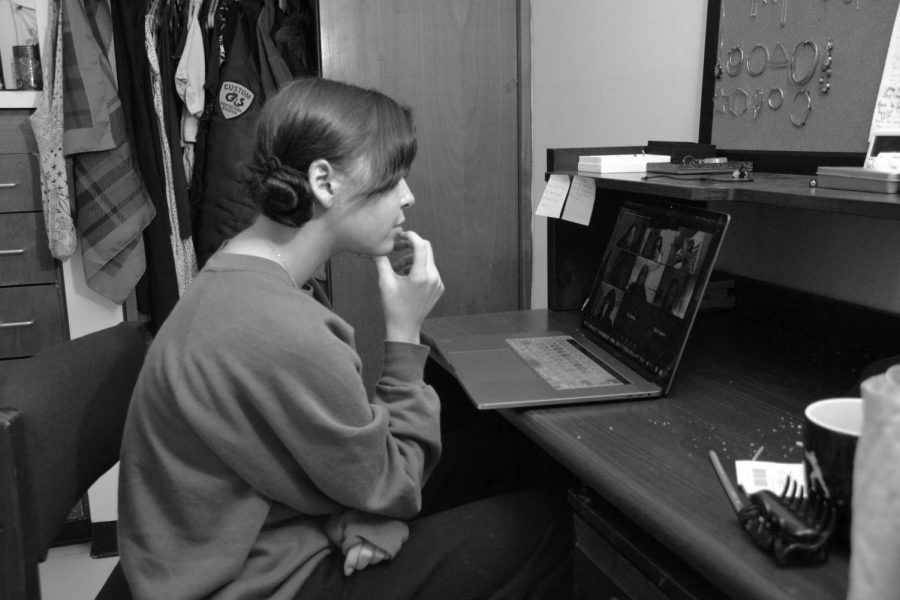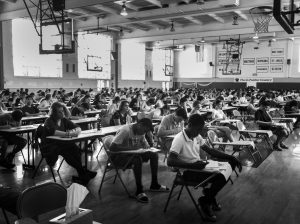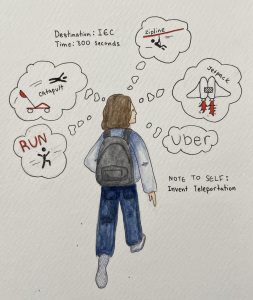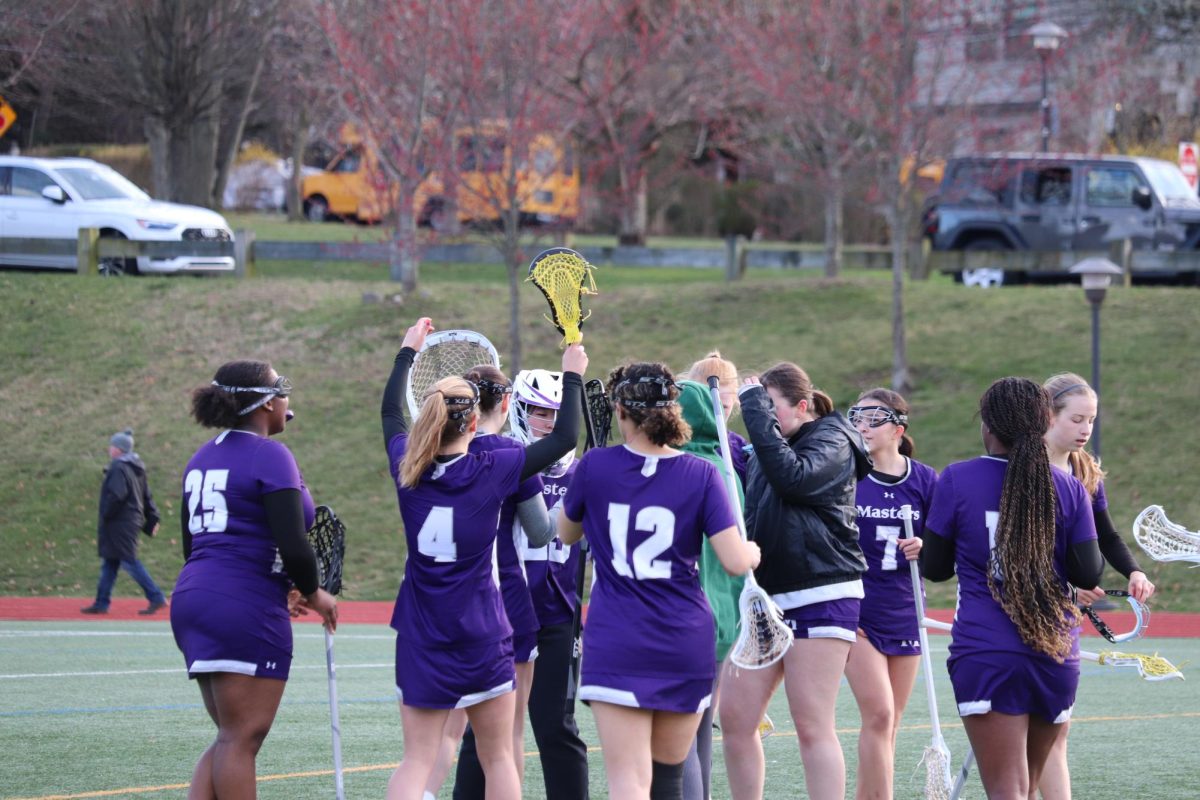Remote day flexibility must apply to boarders
Senior Sophie Neale attends an online class on March 3, a day of required remote classes for the Upper School. While day students are allowed to attend classes remotely any day of the year, boarding students are forced to attend school in-person
March 10, 2021
I have days where I feel as though my school work is slowly becoming too much to handle. I have days where I can’t stop fearing for my older relatives and my family as the COVID-19 death toll rises. There were even days as I returned to campus where I was scared of being surrounded by so many people again due to Covid.
But as a day student, I have had a crutch that I have had the option to lean on: the ability to take a remote day. I, along with the day student population at Masters, can work with the attendance coordination team to acquire remote days if my family decides it is necessary or issues such as health problems arise. However, as the boarding students returned to the campus dorms, it has been made clear that this flexibility to go into school or to stay remote is exclusively for day students. Boarding students are required to be in-person for classes and may not choose to take a remote learning day –– a policy which is, simply, not fair.
On Saturday Feb. 6, campus dorms were re-opened for the first time in nearly a year with self-selected boarding students from all grade levels returning. Upon arrival with one negative COVID-19 test, a quarantine was immediately put in place while second test results were pending. For many boarders, the expectation was to return to in-person classes the following week. However, five days later, on Thursday, Feb. 11, negative test results came back, and students returned to in-person classes that Friday. Many asked to have one more day of remote learning from their dorms, as they felt unprepared to face the in-person learning environment, but were denied the requests and informed that participating in classes virtually is no longer an option. This, for numerous boarding students, was when the reality of the school’s remote day policy sunk in.
Senior Ayla Gonzalez-Koehne, one of the 33 borders to return back to campus, recalls the effect the news left on her dormmates.
“It caused a mass hysteria in the dorms. On Friday morning, it was like we were all having a shared anxiety attack.”
As the school becomes more flexible for day students with the remote learning policy, the same flexibility should be reciprocated for boarders alike. After so long away from campus, returning to school amidst a pandemic, constantly surrounded by people, is overwhelming. Therefore, virtual learning days pose a number of benefits, including helping to adapt and ease into a new learning environment, reducing emotional and mental pressure and less stress about school overall.
However, Director of Residential Life Dena Torino voiced a different side on the matter, stating that one of the main reasons the administration worked to open the dorms was so students can have the benefits of being in-person with their peers and teachers, and therefore, boarding students on campus should be going into in-person classes at every opportunity.
“To move onto a school campus to sit in your dorm and go to school remotely is simply not why we opened the dorms.” Torino said, “You’re here to go to school in-person. The boarding students signed up to be boarders, we want students to feel as at home as they can, but this is not the same as being at home, and there are inherent differences.”
Additionally, Torino added that if boarders are not feeling well emotionally or physically, she, along with the administration, encourage the usage of the support systems in place for them, including counselors, the health center, advisors and other trusted adults.
Dean of Students Jeff Carnevale reflected the same thoughts.
“It’s important to note that for day students, being remote is a family decision. You cannot choose to be remote if you just don’t feel like coming to school. For boarders, the goal of returning to boarding was to be able for them to attend school in-person. The requirement is to be in-person. That being said, if anyone is struggling with mental/physical health issues, they can report to the health center and be supported there.”
It is true that many borders returned to campus to finally go back to in-person classes, however for some, there is more depth in the reasoning for returning to campus. Gonzalez-Koehne describes boarding at Masters as “an escape” for many from financially insecure or other anxiety-inducing situations at home, and said it was an “inconsiderate point of view,” to assume all boarding students only returned to be physically going to school.
Now more than ever, looking after the mental health of students is imperative as uncertainty and fear seems to lurk around every corner. And while there are other mental health support systems available on campus, occasional remote days can support every student when they want to attend class, but need a break from the fast-paced school day.
Torino said she does not foresee the policy to allow boarders to be remote changing, and Carnevale stated this policy is set in stone.
























